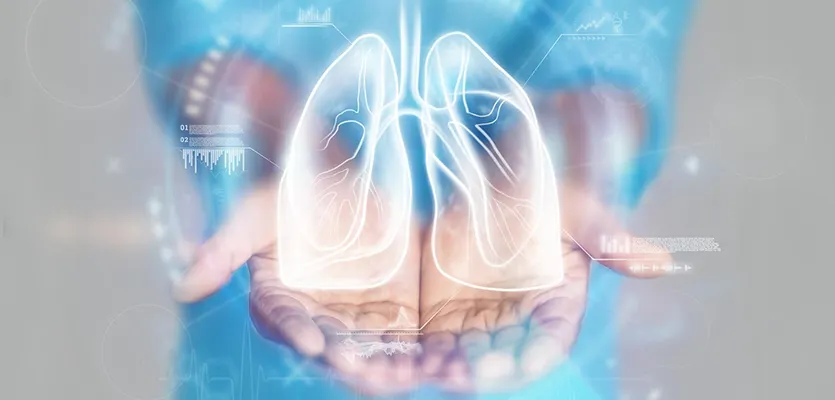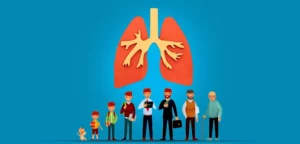In humans, the lungs are among the most vital organs. Despite their delicate structure, they maintain the oxygen requirements of your whole body for as long as you live. However, these organs are highly vulnerable to damage through infections, illnesses, pollution, and some inappropriate habits like smoking.
In cases where the lungs are damaged beyond the scope of recovery by medications and treatments, doctors opt for a transplant as a last resort. Considering human survival is impossible without the lungs, a lung transplant is indeed a serious surgery. It involves taking multiple precautions before and after the surgery, several possible complications, and making considerable changes to your lifestyle.
This article aims to run you through the different aspects of the lung transplant process that require your attention and how you can handle them smoothly. Lung Transplant Recovery, Risks, And The Complete Outlook
The Lung Transplant Process Involves A Major Surgery
Before the transplant surgery, you have to go through a thorough health analysis. This involves physical examinations, imaging tests, blood tests, and other checkup methods. Once you qualify the eligibility criteria for the surgery, your name is included in the list of recipients waiting for a suitable donor. The donor then goes through several tests to ensure their suitability. All of this could take anywhere between a few months to over a year.
After youve found a suitable donor and fulfilled the legal criteria, the doctor performs the surgery. A lung transplant surgery involves making an incision to open up the chest cavity and taking out the diseased lungs, and placing the donors lungs in their stead. Depending on how complex your case is, this surgery could take about 4 to 12 hours.
The transplant is usually performed while putting the recipient on a ventilator life support. Hence, after the surgery, your doctor would immediately shift you to the ICU and keep you under constant observation until they
e positive youve recovered enough to go home.
Precautions Are A Crucial Part Of The Deal
Taking proper precautions forms the basis for the success of any surgery. During the consultation sessions with your transplant team, discuss all the precautionary steps you must take before and after the procedure. Mentioned below are a few things you should remember.
Before The Surgery
Right before the surgery, your doctor would run several tests. This is to ensure your body is in good condition to handle the lung transplant process.
You need to prepare your body for surgery to prevent any complications. Heres how:
- Avoid cigarettes and e-cigarettes for at least 6 months before the transplant
- Avoid the consumption of nicotine, including tobacco, cigars, etc., for at least 6 months before the transplant
- Avoid the consumption of alcohol
- Avoid substance abuse, including marijuana and cocaine
After The Surgery
During the early days after the surgery, you will be under the constant supervision of the doctor. But after you return home, you will need to follow your doctors instructions and take the precautions as told. Some of them are listed below:
- Follow a healthy diet and limit the intake of junk food.
- Exercise regularly; begin with light physical activities like walking and jogging for short durations and increase the time gradually; avoid exercises like weightlifting that put too much pressure on your lungs and heart.
- Take all your prescribed medications on time; this would include immunosuppressants and, for some time, antibiotics and painkillers.
- Regularly taking immunosuppressants makes your body vulnerable to infections; keep your surroundings clean and maintain a hygienic lifestyle.
- Visit your doctor for regular health checkups; perform a self-examination of your breasts/testicles.
There Are Possible Complications
Like with every other major surgery, the lung transplant process comes with several possible complications. It is important that you are aware of these possibilities to take the necessary precautions and seek medical help when needed.
There are 3 possible major complications of lung transplant surgery:
- Primary Graft Dysfunction: This is the situation where the transplanted lungs do not function properly right after the surgery. A number of reasons could cause this.
- Infection: Right after the surgery, your body is highly vulnerable from the immunity perspective. So you can easily catch infections during the surgery if the surgical team doesn take the necessary hygienic measures. Also, during the recovery from the surgical wound, youd need to take antibiotics to prevent any infections in the wound.
- Organ Rejection: Your immune system can recognize the transplanted lungs as a foreign organ and attack them, causing serious damage. This is called organ rejection and can happen right after the surgery or anytime later on. To prevent this, youll need to take the prescribed immunosuppressive medications as instructed by the doctor.
Apart from these, a lung transplant also exposes you to many other vulnerabilities. Due to the constant intake of immunosuppressants, you are more prone to developing cancer. In such cases, skin cancer is the most common type observed. To prevent this, always wear sunscreen during the day, even when you stay indoors. When going out, try wearing full-sleeved clothes and out on a loose hat.
You might also experience skin issues like dryness and acne and hair issues like excessive hair fall or abnormal hair growth. These could be the side effects of your medications. You can consult with your doctor about the best way to resolve them.
Survival Patterns After A Lung Transplant
The success and survival rates for any lung transplant process vary among individuals. It depends on your lung condition, the type of transplant you go through, your overall health status, your transplant team, and the care and precautions you take.
Experts have observed patterns in the survival rates of people who had undergone a lung transplant over a few years. As per the statistics, the 1-year survival rate after a lung transplant is 85%, while the same for 5 years is around 59%. It is also observed that people who undergo a bilateral or double lung transplant have higher survival rates in the long run.
The Bottom Line
A lung transplant is a serious procedure to go through. It challenges you emotionally and physically. However, as it is performed when theres no other way, the difficulties are worth it.
Having the company of your loved ones to take care of you and share this journey with makes the whole treatment a lot easier. Also, if you choose a good transplant team that is experienced and expert in what they do, along with being empathic and supportive, half of the weight will be lifted off your shoulders.
Dr. Arvind Kumar and his team of highly proficient medical professionals provide a highly comprehensive lung transplant process. With over 40 years of experience in the field, he provides supportive and efficient treatment to all his patients in a personalized way.
For more details about Dr. Arvind Kumar’s services, contact us at 9773635888.

.webp)



